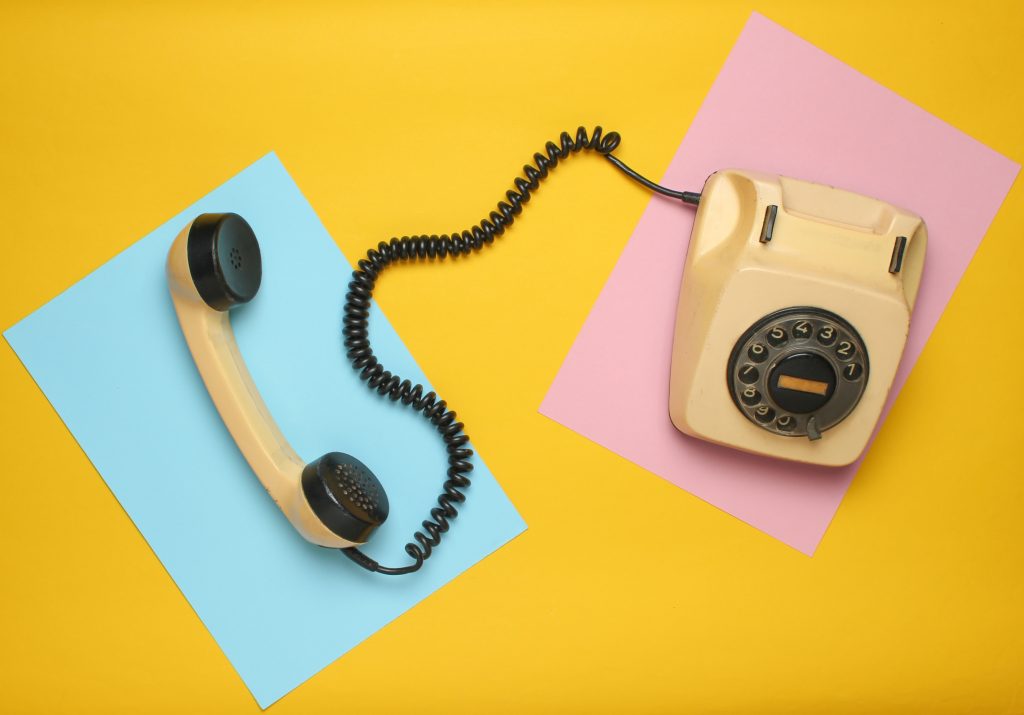
Remember the sound? The satisfying whir as the dial spun back into place. The solid, hefty weight of the receiver in your hand. For anyone born after the smartphone era, the rotary phone is an ancient relic. It’s an icon of a slower, less connected time. Yet, for those who grew up with it, there’s a strange sense of nostalgia.
It’s easy to dismiss this as just a longing for the past. But it’s more than that. The limitations of that old technology fostered habits and connections that we have lost in our hyper-efficient world. There are real, surprisingly sweet reasons people miss rotary phones, and they reveal a lot about what we crave today.
1. The Satisfying Tactile Experience
Using a rotary phone was a physical act. You had to stick your finger in a hole and pull. You could feel the mechanics working. The click-clack of the dial returning to its position was a tangible part of the conversation. It was a multi-sensory experience.
In contrast, tapping on a flat glass screen is sterile and disconnected. There’s no satisfying feedback. The rotary phone engaged your sense of touch in a way that modern devices simply cannot replicate. It felt real.
2. It Forced a Moment of Intention
You couldn’t dial a number quickly on a rotary phone. Dialing a “9” or a “0” took a few seconds. This built-in delay forced you to be deliberate. You had to actually think about the call you were about to make. You couldn’t mindlessly speed-dial someone while doing three other things.
This small pause created a sense of intention. It made the act of reaching out to someone feel more significant. The call was a dedicated event, not just another task squeezed into a busy moment.
3. Calls Felt More Significant
Long-distance calls were expensive. You didn’t call someone across the country just to say hi. A long-distance call was an event. It meant you had something important to say. The cost and effort involved gave the conversation more weight.
Today, communication is cheap and constant. That’s a good thing in many ways. But it has also devalued the act of a phone call. The significance of a planned, intentional conversation has been lost in a sea of endless texts and notifications.
4. Privacy Was Built-In (No Call Waiting!)
If you were on the phone, you were on the phone. No one else could get through. You’d just get a busy signal. There was no call waiting beeping in your ear. There were no notifications popping up on your screen. You could give the person you were talking to your undivided attention.
This created a private, focused space for conversation. It was a bubble that couldn’t be easily burst by the outside world. This form of focus is almost impossible to achieve today.
5. The Unmistakable, Comforting Ring
Every rotary phone had a real, physical bell inside it. The ring was a loud, commanding, and distinctive sound. It was the sound of connection, of someone wanting to talk to you. You couldn’t mistake it for a text message or an email notification.
Modern ringtones are customizable and often generic. The old bell was a universal signal. It was a sound that meant community and family. It was the sound of the home itself coming to life.
6. It Fostered Real Listening
The phone was often in a central location, like the kitchen. It had a long, coiled cord that kept you tethered to one spot. You couldn’t wander around the house doing chores while you talked. You had to sit or stand in one place and focus on the conversation.
This limitation encouraged better listening. You weren’t distracted by other tasks. You were fully present in the conversation because you had no other choice. It was a forced mindfulness that is rare today.
7. The Shared Family Experience
There was only one phone line. This meant the phone was a shared family resource. You had to negotiate its use with your parents or siblings. You might even overhear parts of their conversations. This could be annoying, but it also created a shared experience.
The phone was a central hub of the family’s social life. It was a tangible object that everyone interacted with. It wasn’t a personal device that isolates us in our own digital worlds. It brought people together, even if it was just to argue over whose turn it was to use it.
In a Fast World, Slow Connections Matter
Missing a rotary phone isn’t about wanting to go back in time. It’s about recognizing what we’ve lost in our rush for efficiency. The slowness, the intention, and the focus it demanded are things we still deeply need. The sweet reasons people miss rotary phones are a reminder that sometimes, the most meaningful connections are the ones that force us to slow down and truly be present.
Do you have a favorite memory of using a rotary phone? Share it in the comments!
What to Read Next…
6 Stores Boomers Still Talk About Long After They Closed
8 Things Boomers Say That Sound Offensive to Gen Z
7 Guest Habits Millennials Say Boomers Just Won’t Stop Doing
Boomers Say They’ve Lost Respect in Public — Here’s Why
10 Outdated Habits That Are Quietly Costing Boomers Thousands
The post 7 Surprisingly Sweet Reasons People Miss Rotary Phones appeared first on Budget and the Bees.







